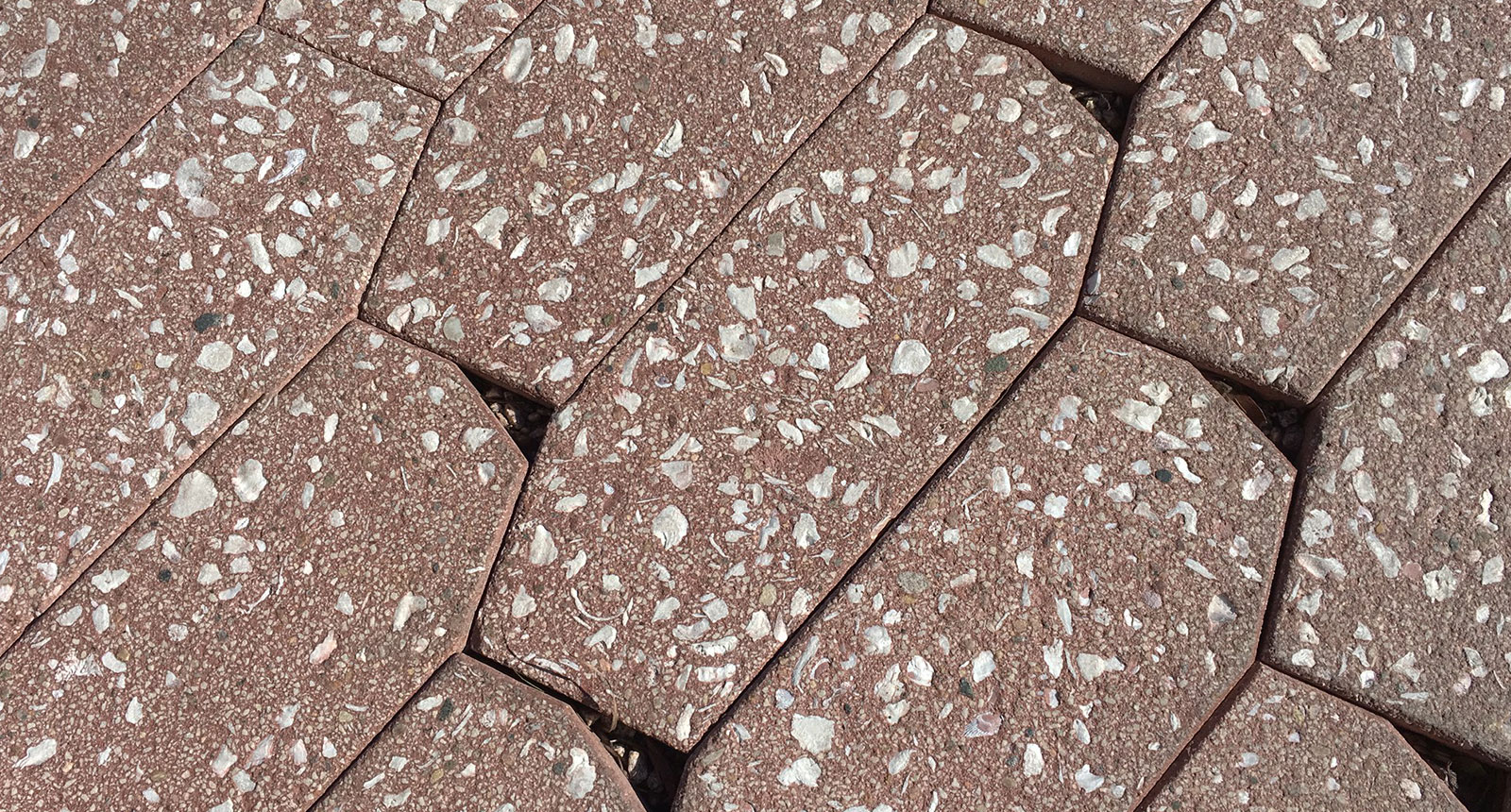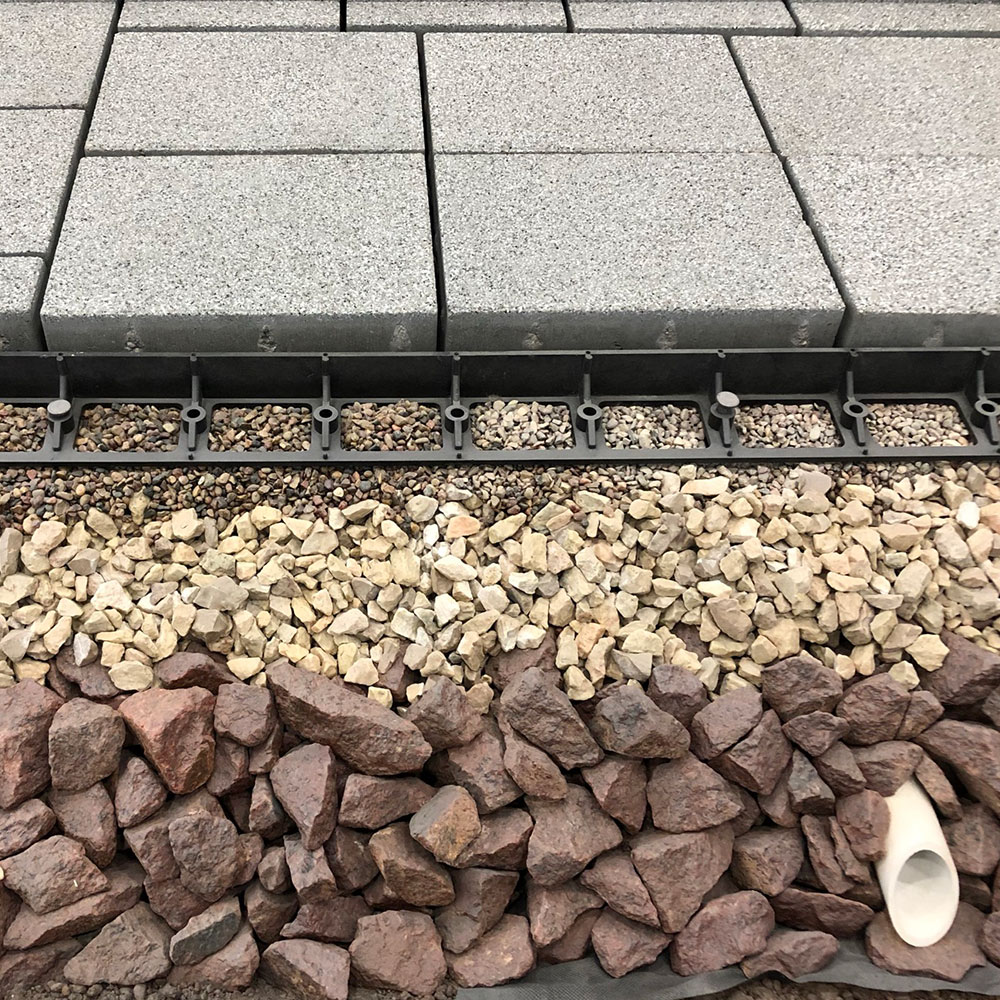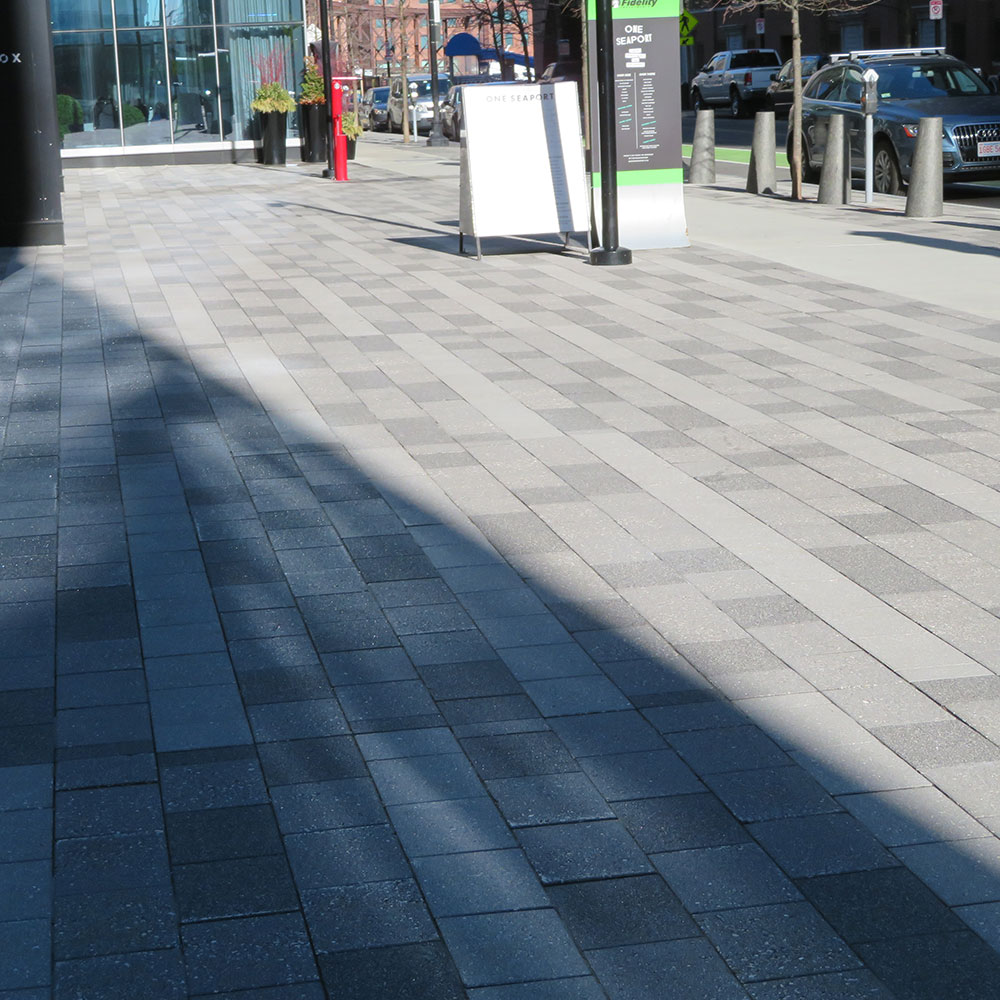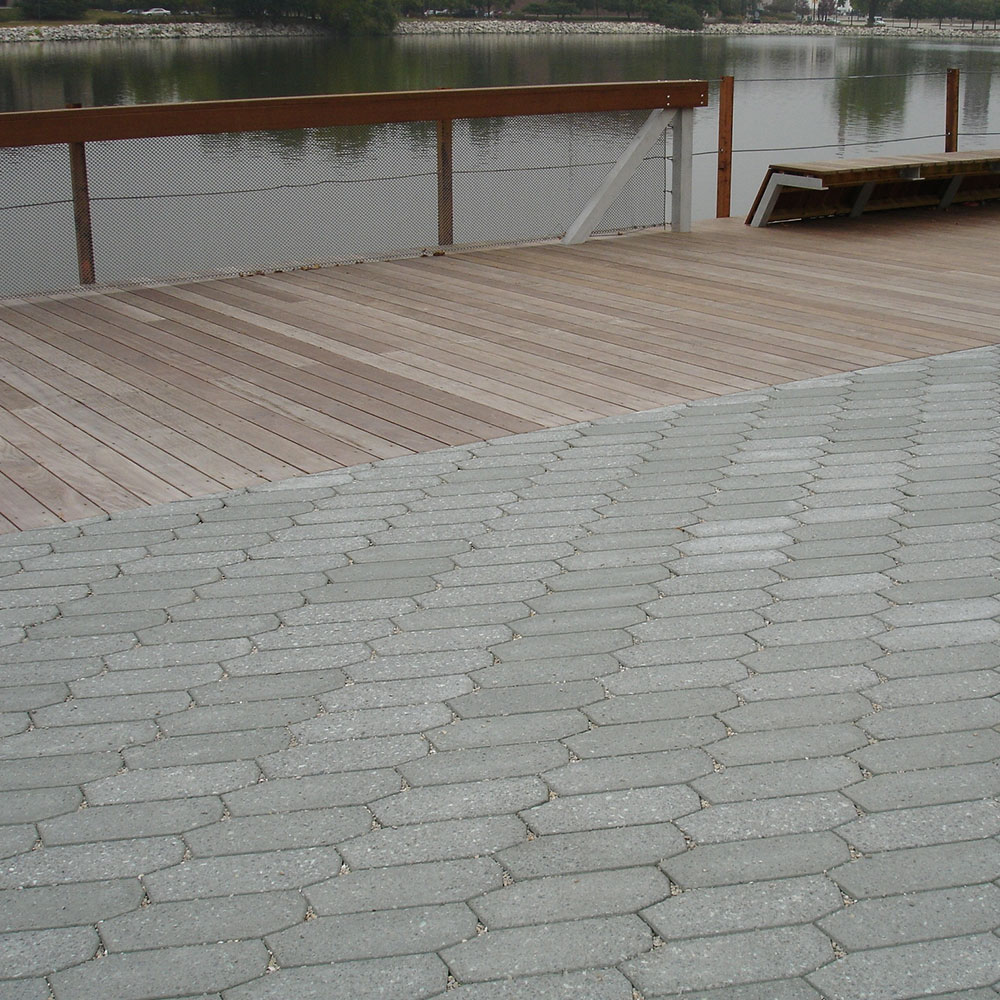What Are Permeable Pavers: the Only Guide You Need

In metropolitan areas, stormwater management has become a necessity. Excessive runoff due to impervious surfaces such as streets, sidewalks and parking lots has resulted in pollutants that deposit into drains and even directly into natural waterways. Residential properties also suffer from water damage from rain and snow.
Using permeable pavers where feasible, rather than concrete or blacktop, allows the water to pass through the surface to the subgrade below where it can be naturally filtered and restore groundwater below the surface.
What Is a Permeable Paver?
Permeable pavers are made specifically with drainage in mind. The term permeable does not refer to the porosity of the paver itself, but rather to its design. Permeable pavers have larger open joints than non-permeable pavers that allow water to flow through them and into the base beneath the paver. Permeable pavers have several advantages, including their aesthetic appeal and endurance over time due to changes in the landscape or weather patterns.
Benefits of Using Permeable Pavers
Permeable pavers have viable uses in both commercial and residential applications. Anywhere excessive water runoff is an issue, permeable pavers provide an environmentally-friendly solution:
- Erosion, localized flooding and stormwater runoff are all reduced.
- Groundwater is replenished by natural filtration processes which improves water quality.
- Grass pavers may be used to provide vegetation, rather than pavement.
- Stormwater management on less land reduces the amount of land required.
- Green space might be sufficient to meet certain environmental requirements, allowing more development on a property.
Ideal Uses for Permeable Pavers
Permeable pavers can be used on almost any surface including driveways, patios, bike paths, access lanes for emergency vehicles, shoulder areas for roads, sidewalks and parking lots. If your region receives heavy rainfall, as in some areas of the south, water can gather on these surfaces, making it difficult to use them. In northern climates, melting snow in the spring can leave pond-size areas of water that take days to evaporate.
Permeable pavers allow water to quickly dissipate into the ground as soon as it develops. This is not only convenient, but it also keeps your walkways and patios usable under heavy water runoff conditions. Unlike other water removal solutions, permeable pavers come in various colors and styles, so you can find the perfect one for your home or business.
How to Install Permeable Pavers
The first distinction between permeable and non-permeable pavers is the base. Permeable pavers have a deeper gravel-only foundation rather than a foundation made of concrete sand and gravel. The base is composed of:
- Bedding course 1 ½-inch to 2-inch (40-50 mm) thick stone (Typ. No 8 aggregate) to a depth of 6-inches
- Apply (100 mm) thick (¾ inch) No. 57 stone to a depth of 4 inches
- Next, apply a 2-inch layer of ¼ inch" to ? inch aggregate
- Geotextile on top and sides of subbase under/beyond the curb
- No. 2 stone subbase with a minimum thickness of 6 inches
This type of base allows the water to drain directly to the underlying subgrade. If filtration is to be carried away, rather than left to be absorbed, non-perforated outfall pipes can be used to carry the water to the desired location.

Wausau's Line of Permeable Pavers
For more than 60 years Wausau Tile has proven its commitment to quality and whether you value elegance or durability, Wausau offers several styles and colors in their permeable paver collection that are sure to meet your needs:
Standard H-Series Sizes
Choose the finest H-Series permeable paver from among eight architectural paver lines with various hues and finishes to match your project demands. Our permeable pavers can be used in any pattern you desire, as well as with numerous sizes, to produce a truly unique aesthetic.
Pedestrian and vehicle applications are available. These are our strongest pavers, with an average compressive strength of 9,500 psi with no individual paver less than 8,000 psi. They come in rectangular sizes of 9 x 12 inches, 6 x 12 inches and 4 x 8 inches.

Patterns include Ecopremier, Estate, Estate II, Frontier, Galaxy, Quattro Series, Ridgeline and Riverside.
Standard V-Series Sizes
Choose the best V-Series permeable paver from a selection of 12 architectural pavers in a variety of colors and finishes to match your project needs. These permeable pavers have a thickness range of 2 inches to 2 ¾ inches, depending on the paver selected. These are available in a rectangle format of 9 x 12 inches or a rectangular shape with "V" edges in 7 x 12 inches.
Patterns include Aurora, Blasted Gas, Ecopremier, Expressions, Exterior Terrazzo, Ocean View, Sand Series, Series Sesto, Stoney Creek, Texture Granite, Timber and Ultra Face.
Maintenance Requirements
Weekly
- Sweeping or pressure washing the deck weekly is recommended. Daily cleaning may be required in areas of high footfall, such as doorways, if they are extremely dirty.
Semi-annually
- Power wash the whole deck surface before pressure washing it. Properly spot clean any stained areas if necessary. Remove pavers over drains on open joint systems. To keep drains flowing and prevent clogging, clear debris from all drain covers. Replace pavers where required.
- Examine the pavers for rocking, low or high edges, joint separation, alignment and broken or chipped pavers. Pavers may be leveled and adjusted with shims if there has been minor settlement or movement. Broken or chipped pavers should be removed and replaced.
Wausau Tile Carries Premium Architectural Products

Here at Wausau Tile, we have been dedicated to quality, value and American handiwork for more than 60 years. Our architectural pavers, site furnishings, terrazzo tile, unique precast concrete and precast terrazzo are unrivaled.
We are more than a manufacturer of top architectural goods — we're a collaborative, responsive and forward-thinking team that works with you every step of the way. Contact us today to locate a representative near you.